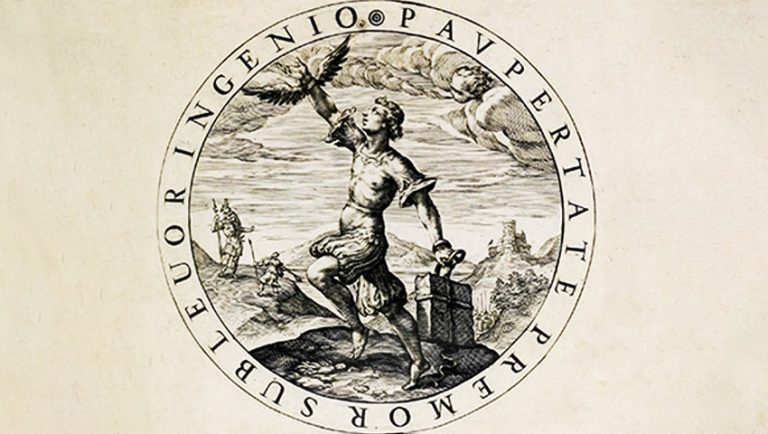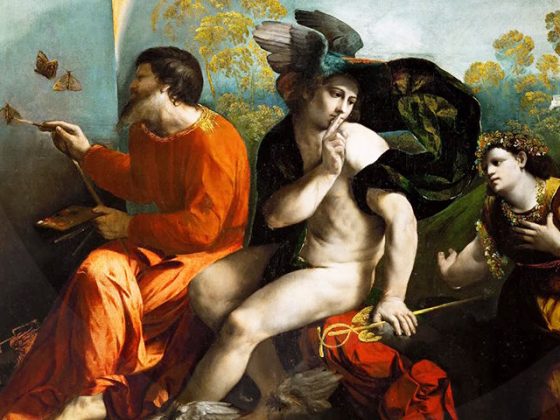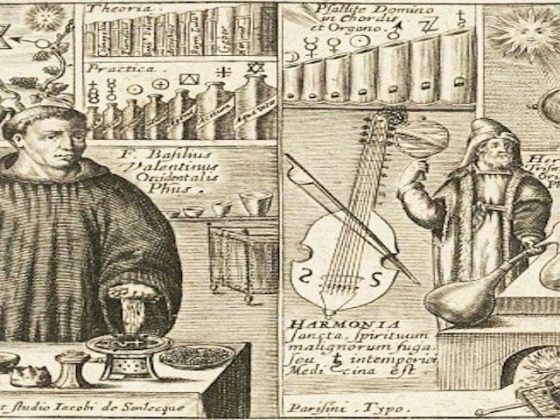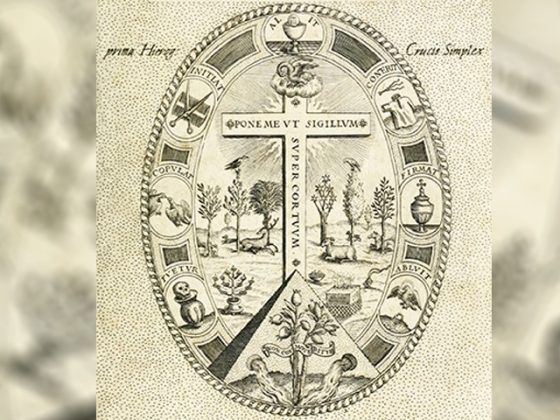Muy querido/a lector/a:
On this occasion, I am sending you a drawing that appears in another book of emblems entitled Selectorum emblematum ─'Selected emblems'─. The texts belong to the German poet Gabriel Rollenhagen (1583-1619), and the engravings to Crispijn van de Passe and Jan Jansson (1588-1664).
The title of this engraving is…
…PAVPERTATE PREMOR SUBLEUOR INGENIO
‘I am brought down by poverty, and lifted up by natural inclination’
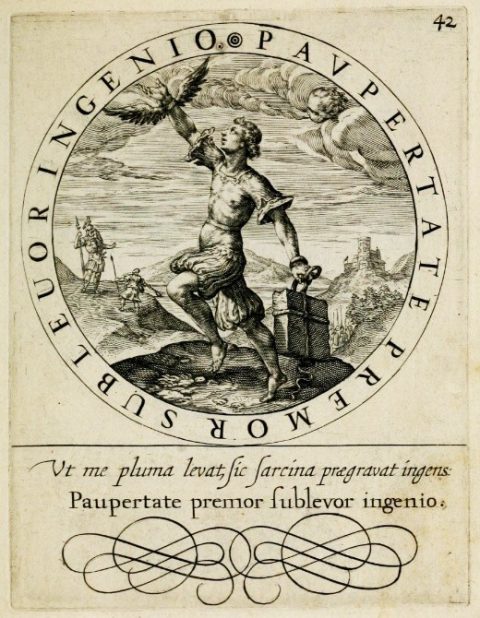
In this engraving we can see, in the central part, a figure whose right hand is handcuffed with a winged shackle, while his left hand is tied with another shackle to a heavy stone. In the background on the left we see a kind of armed giant in front of a smaller man who confronts the first one using a slingshot with which he tries to face the giant.
Phrase in Latin:
Ut me pluma levat, sic sarcina praegravat ingens.
Translation: ‘Just as a feather lifts me up, so too does a heavy weight weigh me down.'
Then another Latin phrase appears:
Paupertate premor sublevor ingenio.
Translation: ‘I am brought down by poverty, and lifted up by natural inclination.'
What is the essence of this engraving? What does it want to convey to us?
First, let us focus on the central character, who is psychically and physically divided between two forces, one that is winged –the right hand– and the other very heavy, represented by the Stone.
Here, dear friends, our duality in relation to the things of the spirit is clearly pointed out. We are poor in spirit, and therefore, although we have longings that are supported by the heavens –see the shackle on the right hand– nevertheless a heavy stone or slab oppresses us and binds us to the Earth, that is, to materialism.
In our daily lives this is very present, and this phenomenon does not allow us to have continuity of purposes. Oftentimes the weight of materialism ends up pushing us to abandon the path and, obviously, we renounce Gnosis, which is a triumph of the Ego over our Essence. Rarely do we rebel against this petrifying materialism and manage to get rid of that heavy slab or stone that paralyzes us.
Regarding the Latin phrase that tells us: “As a feather lifts me up ─the strength of the BEING─, but a heavy burden oppresses me”, this is even clearer in the verse that is given or added in Old French, let us see:
Mon esprit est orne des grands dons de Nature,
qui le tirent en haut jusqu´au secret de Dieu,
Mais un poisant fardeau retient en ce bas lieu
ses valeureux dessains, c´est la Pauvreté dure.
Translation:
‘My spirit is adorned with the great gifts of Nature
that lifts it up to the secret of God,
but a heavy burden is held in this low place
its brave designs, it is harsh poverty'.
Certainly, the Father wants us with Him, but our ten thousand psychological aggregates constitute a heavy burden for that attempt. That is our poverty of spirit, our moral disgrace…
If we do not use our cleverness our talent, through permanent SELF-OBSERVATION, we will never be able to discover our weaknesses, which prevent us from being assisted by the solar hierarchies that try to help us and that are shown in our engraving by the head of a little angel that peeks through the clouds in the sky.
In the background that combat is depicted, similar to that of David against Goliath, one of normal height, the other turned into a giant ─metaphorically speaking─. In the end, David's talent ─using a Stone as a weapon─ knocked him down and defeated him. Obviously, we must see in that Stone the Philosopher's Stone, which is our secret weapon against the stubborn Ego.
It is unquestionable that we must intensify our longings day after day through the practices that our sacred doctrine gives us. Likewise, the reading of the works of our Patriarch will increasingly turn our hopes into concrete facts related to our AWAKENING…
Allow me to add a few appropriate sentences:
“Have boldness and faith in yourself. Woe to you if you are afraid!”
Seneca
“Audacity sometimes bears fruit that the most profound calculations cannot achieve.”
Machiavelli
“Audacity is acquired by knowing the world, and discretion is acquired by knowing man.”
Ramón Gómez de la Serna
“Cleverness is a kind of ingenuity, which sometimes makes up for the lack of true ingenuity.”
François de La Rochefoucauld
“Virtue is a horizontal line, strength is a vertical line, and cleverness is an oblique line.”
José Martí
AD INFINITUM.
─'To infinity'─.
KWEN KHAN KHU


